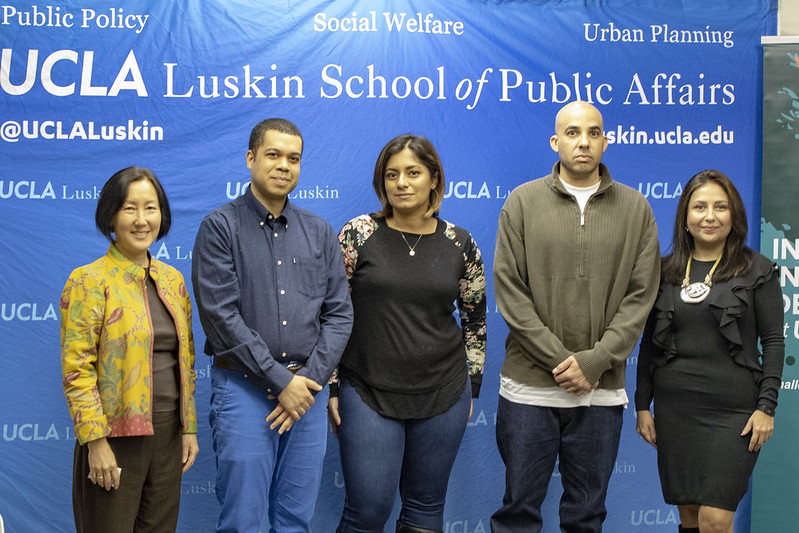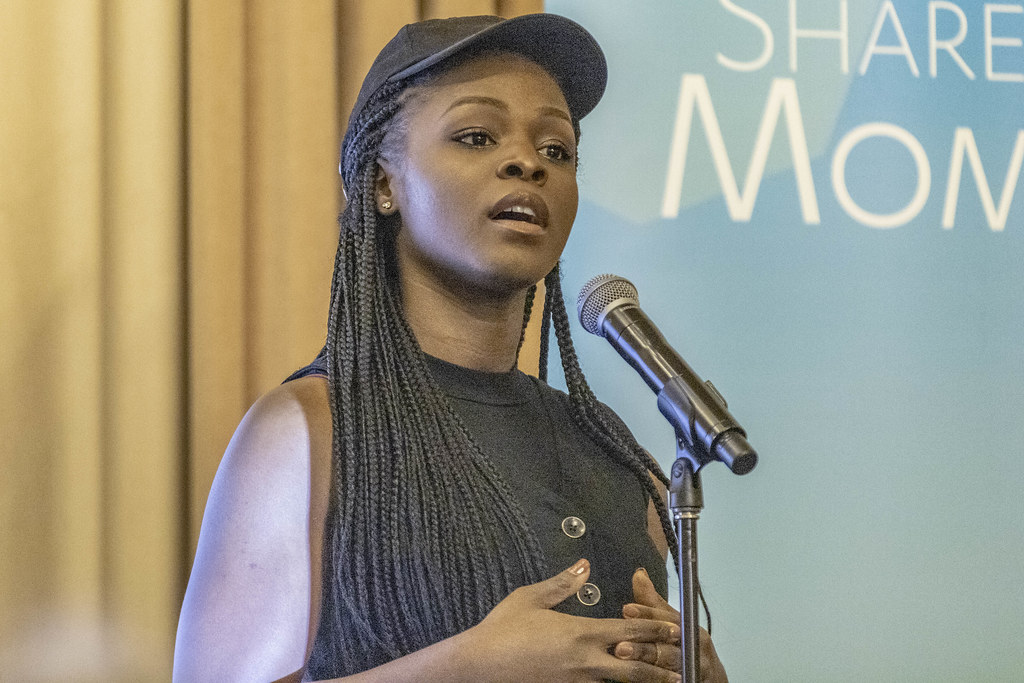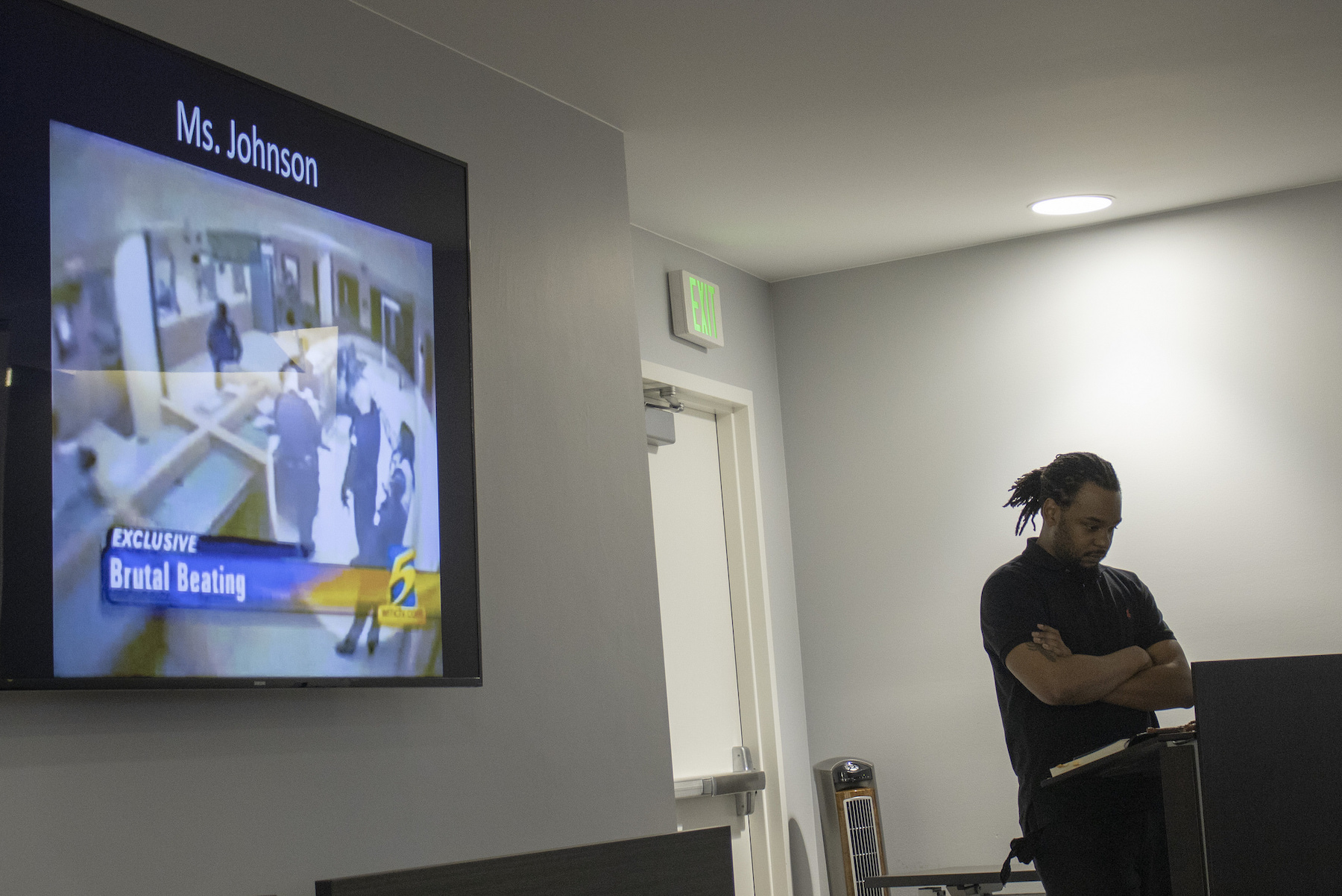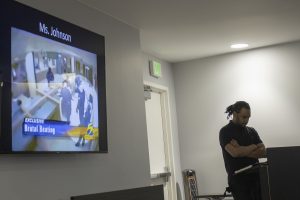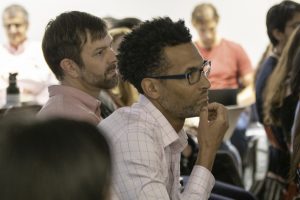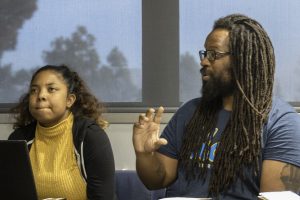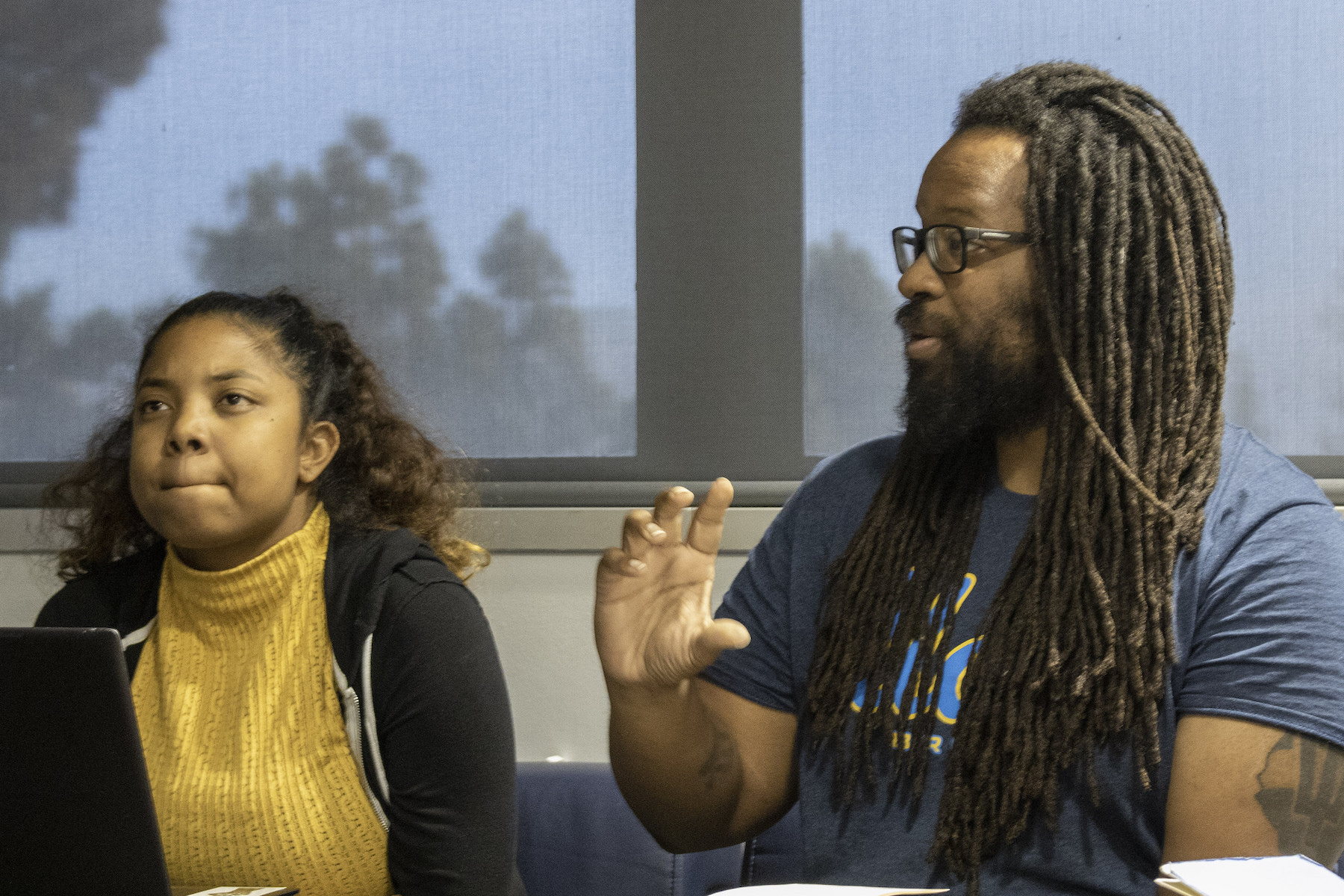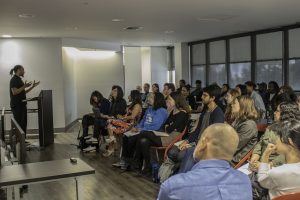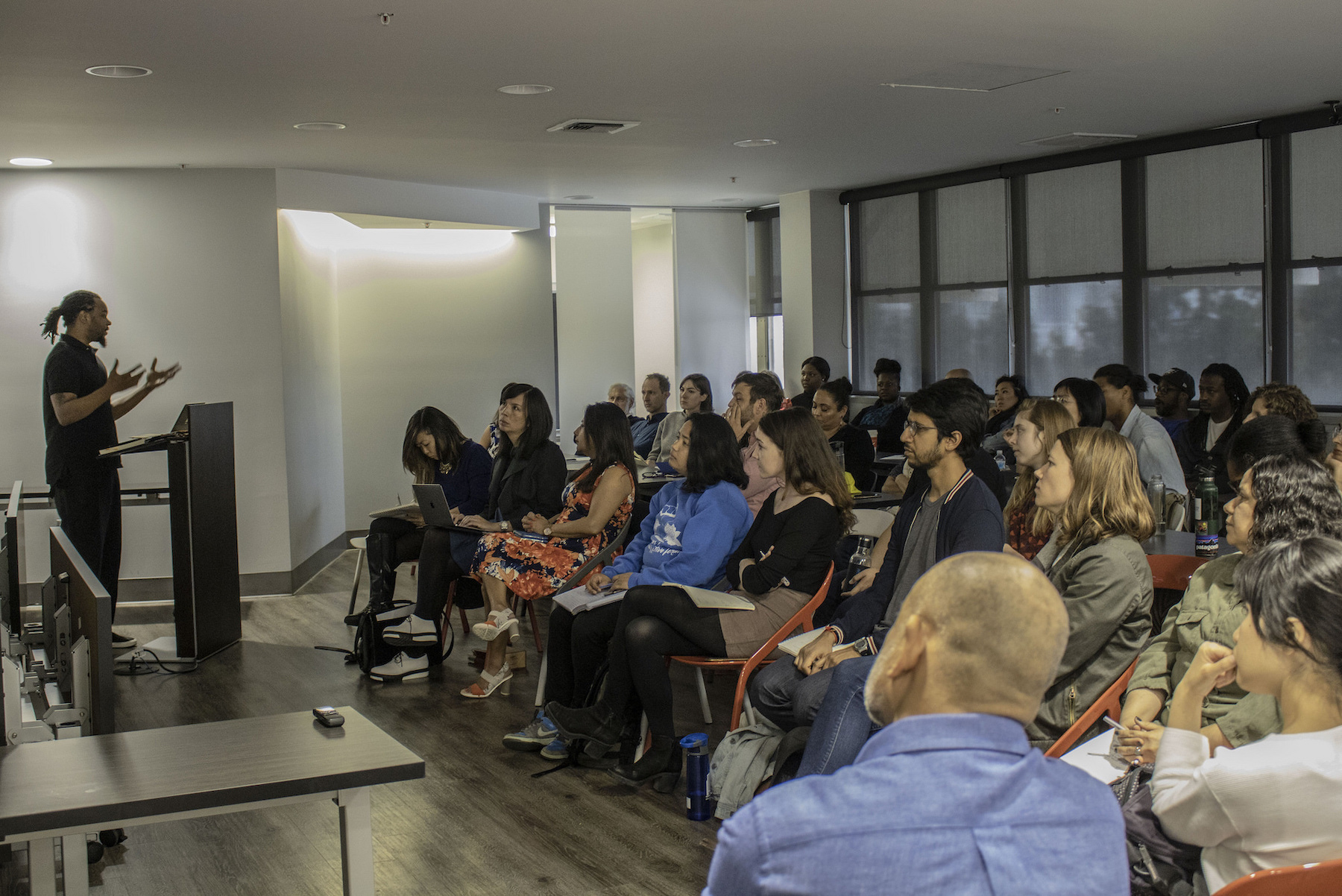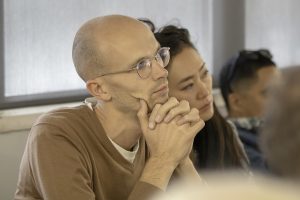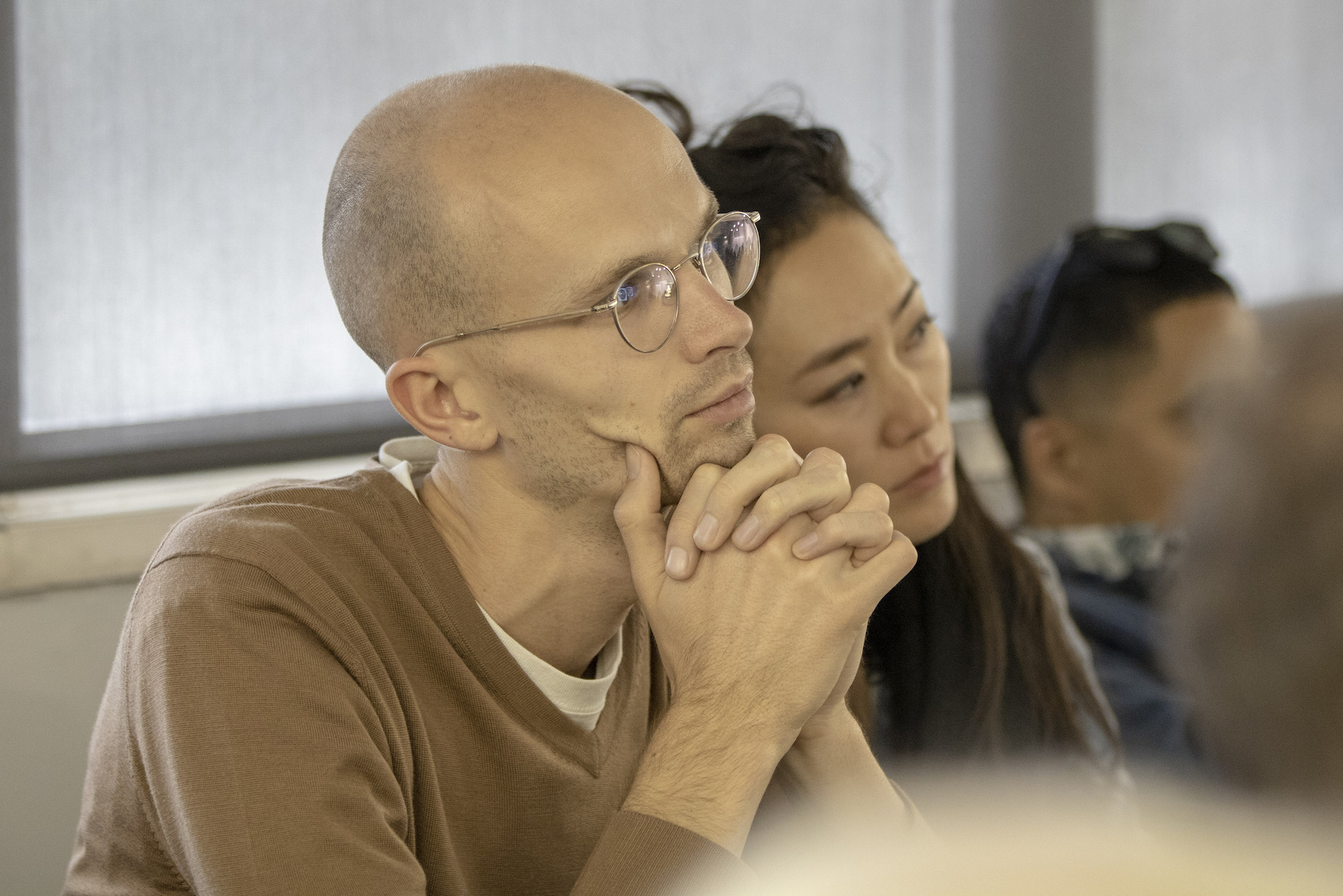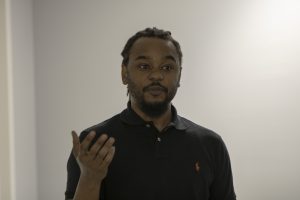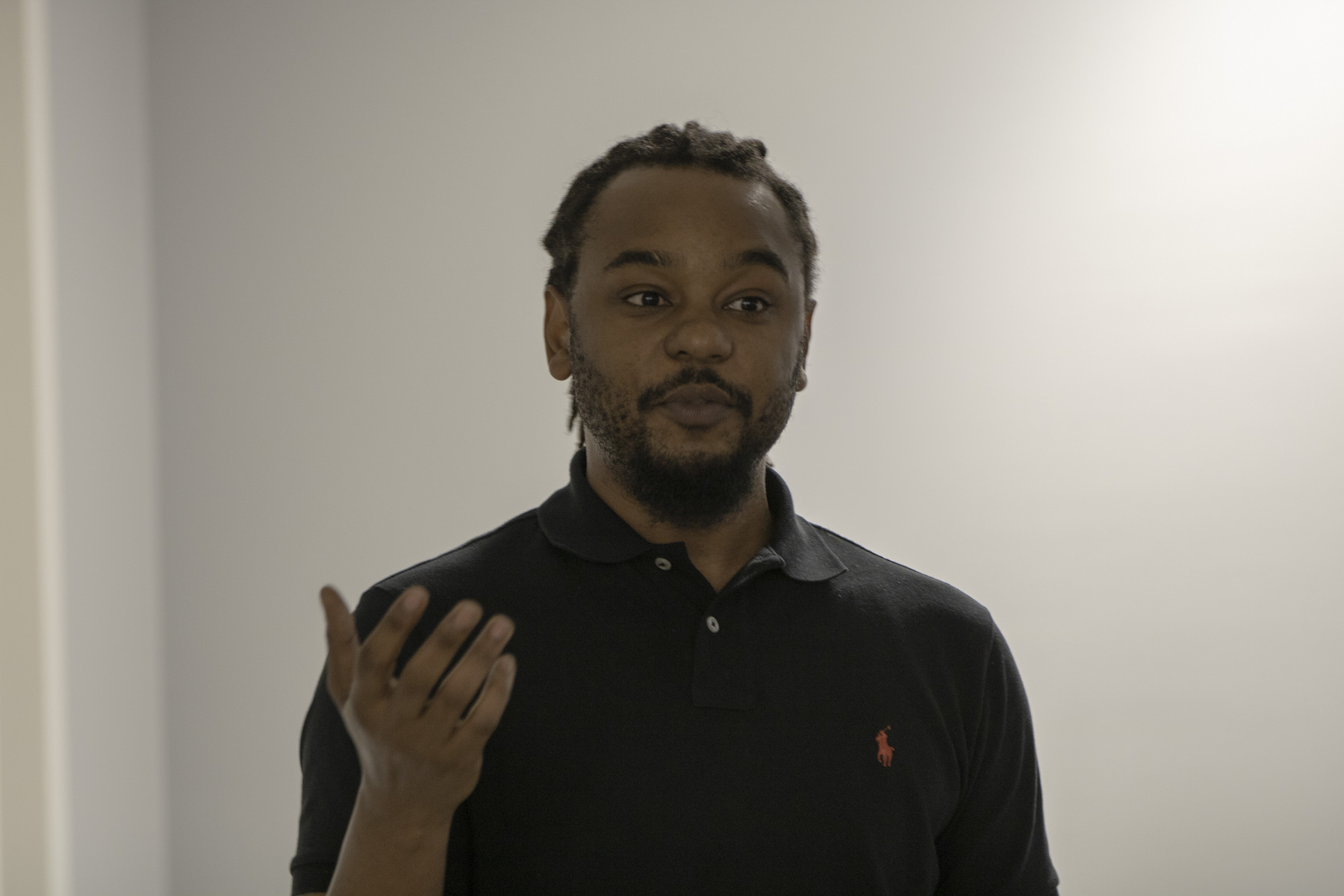By Cristina Barrera and Les Dunseith
The 2019 UCLA Activists-in-Residence were introduced Jan. 16 to about 100 students, faculty, staff and community supporters who did not let a steady rain deter them from welcoming activists Micah White, Yusef Omowale and UCLA Luskin alumna Tanzila “Taz” Ahmed MPP ’07.
During their residency at UCLA, each of the three activists will pursue a project designed to advance their commitments to social justice. They will also engage with UCLA faculty and students to share their methodologies for social change.
The Activist-in-Residence Program was launched in 2016 by the Institute on Inequality and Democracy at UCLA Luskin and the UCLA Asian American Studies Center to advance core research themes concerned with “building power to expose and tackle various forms of dispossession in unequal cities,” said Institute Director Ananya Roy, professor of urban planning, social welfare and geography. “We have insisted on turning the public university inside out.”
Micah White, Ph.D., is an author, public speaker and lifelong activist who co-created Occupy Wall Street, a global social movement that spread to 82 countries. His first book, “The End of Protest: A New Playbook for Revolution,” was published in 2016.
“This kind of opportunity for the critical pedagogy of activism is as rare as it is needed,” White said prior to the reception. “Activism and the ways we protest must change if it is to regain its effectiveness. And the best way to do that, I believe, is to bring the rigorous thinking of academia to bear against the deep strategic and theoretical challenges facing practicing activists.”
White’s time at UCLA is focused on whether activism can be taught — and how to do it. He and Roy are exploring that issue by co-teaching a course on housing justice activism and protest as part of an effort known as Activist Graduate School.
During her opening remarks, Roy said, “Micah has brought to UCLA Luskin his latest project, Activist Graduate School, which I see as an urgently necessary effort to build pedagogy an infrastructure in these troubled times.”
◊
As archivist at the Southern California Library, Yusef Omowale has been a participant in collective memory work to document the impacts of policing, incarceration, displacement and poverty. He has been involved in political education workshops, campaign support, and the offering of spaces for healing and material support to ease the day-to-day sufferings of individuals in need.
Founded over 50 years ago, the Southern California Library holds extensive collections related to the history of community resistance.
“I am thankful to receive this Activist-in-Residence position for the respite and resources it offers,” Omowale said. “Coming from a struggling nonprofit, having access to all the university affords is no small thing.”
Even so, Omowale said his acceptance of the fellowship carries with it a measure of trepidation.
“The university, consorting as it is with racial capitalism and its progeny, neoliberalism, is not a safe place for most of us,” he explained.
Working in South Central Los Angeles, Omowale is regularly confronted “with dominant imaginings of the violence that we must have to contend with in our work. And certainly, we encounter the violence of poverty, environmental toxins, policing and the interpersonal kind. From this reality, the university is meant to represent a safe haven — a north star.”
Yet, he said, the geography of the university is bounded and sustained in part by the “violence it enacts on communities like the one I work in.”
He continued: “Whether intended or not, this residency has a discursive role in legitimizing the university, erasing its violence, through appropriation of ‘activism.’ I cannot ignore this function, nor my participation in it.”
On the other hand, “there are so many people laboring in the university that I love, and I am thankful for the opportunity to join them in their collective projects for freedom. I will take the advice of Harney and Moten that ‘in the face of these conditions one can only sneak into the university and steal what one can,’” Omowale said, referring to the book, “The Undercommons: Fugitive Planning and Black Study,” by Stefano Harney and Fred Moten.
During his residency, Omowale will extend his work on building an archival practice that can document displacement and dispossession in Los Angeles.
◊
The UCLA Asian American Studies Center (AASC) selected Tanzila “Taz” Ahmed as its 2019 UCLA Activist-in-Residence because of her “creative use of storytelling, art, social media and digital technology to advance Asian American social justice movements that is path-breaking and fits perfectly with our center’s digital initiatives ” said AASC Director Karen Umemoto, professor of urban planning at UCLA Luskin. She further noted that while pursuing her Master of Public Policy degree at UCLA Luskin, Ahmed was part of a student-led initiative to bring critical race theory into public policy.
Ahmed is co-host of a popular podcast titled “#GoodMuslimBadMuslim” and an avid essayist. She was honored as alumna of the year by UCLA Luskin Public Policy in 2017.
Ahmed said that “digital tools have become one of the most democratizing ways to access movement knowledge, history and analysis to inspire this community forward.”
She continued, “As a community, we have to tell our own counter-narratives and contemporary histories that keep getting sidelined — and what better way to do that than a digital storytelling project rooted at UCLA?”
Ahmed will explore the intersection of digital storytelling with the building of political movements by developing an audio advice column for new Asian American activists.
Her fellowship is made possible through the Yuji Ichioka and Emma Gee Endowment in Social Justice and Immigration Studies, which honors the late UCLA scholar Yuji Ichioka and his wife, activist-scholar Emma Gee.
The Institute on Inequality and Democracy fellowship program is supported by a gift from the James Irvine Foundation.
View more photos from the reception on Flickr:
